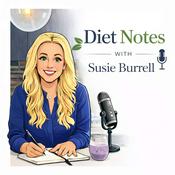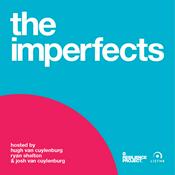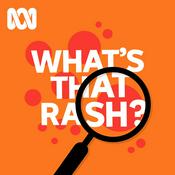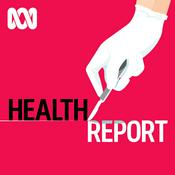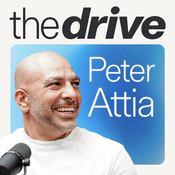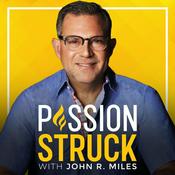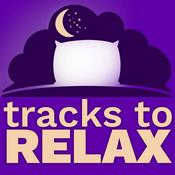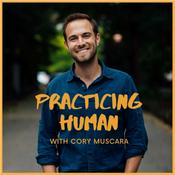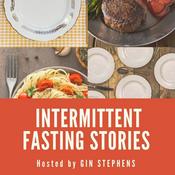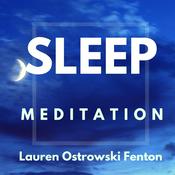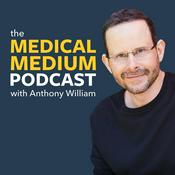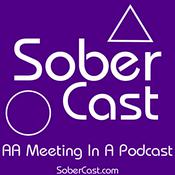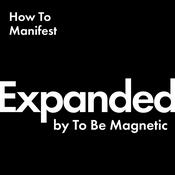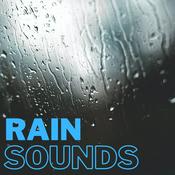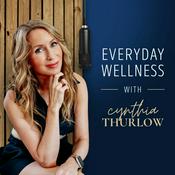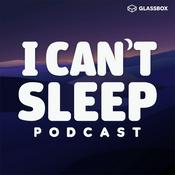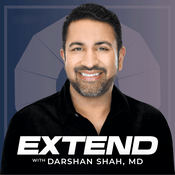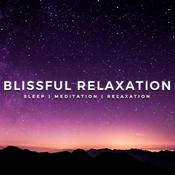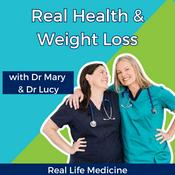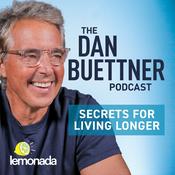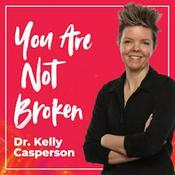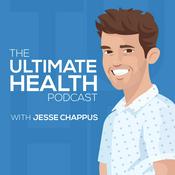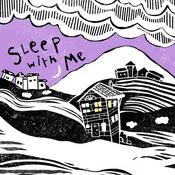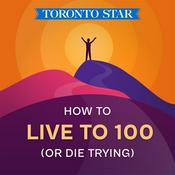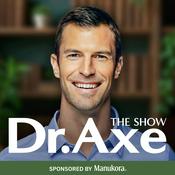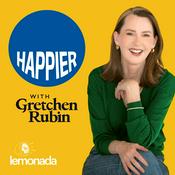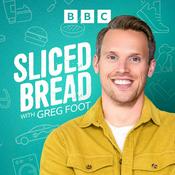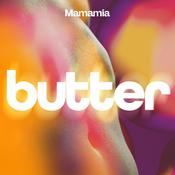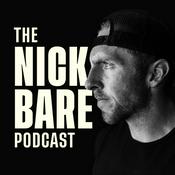60 episodes
- How do you prepare your child — and yourself — for one of the biggest parenting milestones so far: starting school?
Welcome to the final episode of Parents' Group, season 4 of It Can’t Hurt To Ask by Queensland Health. This week, your hosts Steph, Alex and Caitlin talk about what it means to send your little one off to school, whether they’re ready, whether you’re ready, or whether you're still figuring that out.
We’re joined by clinical nurse, Mel, who shares what school readiness really looks like (spoiler: it’s not about counting to 100) and how to navigate everything from routines and emotional independence to your own feelings of grief, pride and identity shifts as a parent.
You’ll also hear from Chris and Hannah as they thoughtfully prepare their daughter, who has ADHD, for her first year at school, and reflect on what they’ve learned along the way.
Resources:
If you or someone you know is struggling with their mental wellbeing, support is available.
In an emergency always call Triple Zero (000).
The following services can provide help and counselling to you in non-emergency situations.
13HEALTH: call 13 43 25 84 and talk to a registered nurse 24 hours a day, 7 days a week.
Pregnancy, Birth and Baby Helpline: call 1800 822 436 to speak with a trained counsellor about the first year of your child’s life.
Parentline: call 1300 301 300 for advice and counselling about any issue that affects you as a parent. Available from 6am to midnight AEST, 7 days a week.
Perinatal Anxiety and Depression Australia (PANDA): contact PANDA on 1300 726 306 or chat online if you or your partner are feeling depressed, or you are struggling after the birth of your child.
Available from Monday to Friday, 9am–7pm.
MensLine Australia: call 1300 789 978 if you’re a man and have family or relationship concerns. Available 24 hours a day.
Lifeline: call 13 11 14 (24 hours a day) if you are experiencing a personal crisis or chat to a counsellor online.
Beyond Blue: call 1300 22 463 for broad mental wellbeing support or speak to a counsellor online.
Connecting2u: sign up for free text messages, support, info and tips for during pregnancy and after you have your baby.
ForWhen: call 1300 24 23 22. Available Monday – Friday 9.00am–4.30pm.
SMS4DADS: sign up for free text messages, support, info and tips – for dads and dads-to-be.
Raising Children Network: offers ad-free parenting videos, articles and apps backed by Australian experts.
Triple P – Positive Parenting Program: free parenting courses for parents and carers of children under... - How do you support your child through their first big friendships, growing independence and never-ending questions while also navigating your own parenting triggers?
Welcome to episode 7 of Parents' Group, season 4 of It Can’t Hurt to Ask, a podcast by Queensland Health. This week, your hosts Steph, Alex and Caitlin explore the wild ride that is parenting a three-to-four-year-old, from kindy transitions and emotional blow-ups to rediscovering your own inner child (whether you want to or not).
Early Intervention Clinician Karen is back to help us understand what’s really happening at this age: socially, emotionally, and developmentally. We chat about preparing kids for kindy, helping them navigate friendships, and how to manage the complex feelings this stage brings up in us as parents, too.
Follow It Can’t Hurt to Ask for future episodes and share with any parent who could use a warm, wise voice in their ear.
Resources:
If you or someone you know is struggling with their mental wellbeing, support is available.
In an emergency always call Triple Zero (000).
The following services can provide help and counselling to you in non-emergency situations.
13HEALTH: call 13 43 25 84 and talk to a registered nurse 24 hours a day, 7 days a week.
Pregnancy, Birth and Baby Helpline: call 1800 822 436 to speak with a trained counsellor about the first year of your child’s life.
Parentline: call 1300 301 300 for advice and counselling about any issue that affects you as a parent. Available from 6am to midnight AEST, 7 days a week.
Perinatal Anxiety and Depression Australia (PANDA): contact PANDA on 1300 726 306 or chat online if you or your partner are feeling depressed, or you are struggling after the birth of your child.
Available from Monday to Friday, 9am–7pm.
MensLine Australia: call 1300 789 978 if you’re a man and have family or relationship concerns. Available 24 hours a day.
Lifeline: call 13 11 14 (24 hours a day) if you are experiencing a personal crisis or chat to a counsellor online.
Beyond Blue: call 1300 22 463 for broad mental wellbeing support or speak to a counsellor online.
Connecting2u: sign up for free text messages, support, info and tips for during pregnancy and after you have your baby.
ForWhen: call 1300 24 23 22. Available Monday – Friday 9.00am–4.30pm.
SMS4DADS: sign up for free text messages, support, info and tips – for dads and dads-to-be.
Raising Children Network: offers ad-free parenting videos, articles and apps backed by Australian experts.
Triple P – Positive Parenting Program: free parenting... - How do you talk to your two-year-old about emotions and discipline while barely managing your own meltdown?
Welcome to Episode 6 of Parents' Group, Season 4 of It Can't Hurt To Ask by Queensland Health. This week, your hosts Steph, Alex and Caitlin unpack the chaos and connection that comes with parenting a two-to-three-year-old, from public tantrums and constant 'but why?' questions to emotional breakthroughs and bedtime battles.
Early Intervention Clinician Karen joins us to explain what’s actually happening during toddler outbursts, how to help your child (and yourself) co-regulate, and what 'discipline' can look like when we focus on building emotional safety. We also explore how to support different family structures and keep relationships strong when co-parents don’t always agree.
You’ll also hear from Katie, a single parent navigating these years with support from her family—a beautiful reminder that you don’t have to do this alone.
Follow It Can’t Hurt to Ask for future episodes and share with any parent who could use a warm, wise voice in their ear.
Resources:
If you or someone you know is struggling with their mental wellbeing, support is available.
In an emergency always call Triple Zero (000).
The following services can provide help and counselling to you in non-emergency situations.
13HEALTH: call 13 43 25 84 and talk to a registered nurse 24 hours a day, 7 days a week.
Pregnancy, Birth and Baby Helpline: call 1800 822 436 to speak with a trained counsellor about the first year of your child’s life.
Parentline: call 1300 301 300 for advice and counselling about any issue that affects you as a parent. Available from 6am to midnight AEST, 7 days a week.
Perinatal Anxiety and Depression Australia (PANDA): contact PANDA on 1300 726 306 or chat online if you or your partner are feeling depressed, or you are struggling after the birth of your child.
Available from Monday to Friday, 9am–7pm.
MensLine Australia: call 1300 789 978 if you’re a man and have family or relationship concerns. Available 24 hours a day.
Lifeline: call 13 11 14 (24 hours a day) if you are experiencing a personal crisis or chat to a counsellor online.
Beyond Blue: call 1300 22 463 for broad mental wellbeing support or speak to a counsellor online.
Connecting2u: sign up for free text messages, support, info and tips for during pregnancy and after you have your baby.
ForWhen: call 1300 24 23 22. Available Monday – Friday 9.00am–4.30pm.
SMS4DADS: sign up for free text messages, support, info and tips – for dads and dads-to-be.
Raising Children Network: offers ad-free parenting videos, articles and apps backed by Australian experts.Is your toddler finding their independence while you’re still figuring out yours?
In Episode 5 of Parent’s Group, Season 4 of It Can’t Hurt To Ask, your hosts Caitlin, Steph and Alex explore the one-to-two-year mark; a time full of transitions, tug-of-war feelings, and late-night comparisons.
Clinical Nurse Megan is back to talk about returning to work, toddler separation anxiety, navigating guilt, and why your connection matters more than hitting milestones.
We also hear from Shahedah and Sufyaan about what it’s really like returning to work as parents of a baby and toddler, and how they’re making it work as a team.
Resources:
If you or someone you know is struggling with their mental wellbeing, support is available.
In an emergency always call Triple Zero (000).
The following services can provide help and counselling to you in non-emergency situations.
13HEALTH: call 13 43 25 84 and talk to a registered nurse 24 hours a day, 7 days a week.
Pregnancy, Birth and Baby Helpline: call 1800 822 436 to speak with a trained counsellor about the first year of your child’s life.
Parentline: call 1300 301 300 for advice and counselling about any issue that affects you as a parent. Available from 6am to midnight AEST, 7 days a week.
Perinatal Anxiety and Depression Australia (PANDA): contact PANDA on 1300 726 306 or chat online if you or your partner are feeling depressed, or you are struggling after the birth of your child.
Available from Monday to Friday, 9am–7pm.
MensLine Australia: call 1300 789 978 if you’re a man and have family or relationship concerns. Available 24 hours a day.
Lifeline: call 13 11 14 (24 hours a day) if you are experiencing a personal crisis or chat to a counsellor online.
Beyond Blue: call 1300 22 463 for broad mental wellbeing support or speak to a counsellor online.
Connecting2u: sign up for free text messages, support, info and tips for during pregnancy and after you have your baby.
ForWhen: call 1300 24 23 22. Available Monday – Friday 9.00am–4.30pm.
SMS4DADS: sign up for free text messages, support, info and tips – for dads and dads-to-be.
Raising Children Network: offers ad-free parenting videos, articles and apps backed by Australian experts.
Triple P – Positive Parenting Program: free parenting courses for parents and carers of children under 12.
Queensland Health Child Health Clinics: Child health services have clinics across the state to provide parenting information and support...Ep 4 | 3-12 months old: please don't touch me (but I'd love to chat to an adult)
03/11/2025 | 41 mins.What happens when your baby starts moving, and your sense of identity starts shifting?
In Episode 4 of Parents' Group, Season 4 of It Can’t Hurt To Ask by Queensland Health, your hosts Steph, Alex and Caitlin talk about the 3–12 month stage of parenting: the joy, the overstimulation, and the weird feeling of not quite recognising yourself anymore.
Child Health Nurse Megan joins us to explain what emotional development looks like in babies, why it’s okay to feel 'touched out,' and how to connect with your little one and yourself during this stage.
We also hear from Brittney, a mum navigating early parenthood while living in a regional town, who shares honestly about isolation and identity.
Resources:
If you or someone you know is struggling with their mental wellbeing, support is available.
In an emergency always call Triple Zero (000).
The following services can provide help and counselling to you in non-emergency situations.
13HEALTH: call 13 43 25 84 and talk to a registered nurse 24 hours a day, 7 days a week.
Pregnancy, Birth and Baby Helpline: call 1800 822 436 to speak with a trained counsellor about the first year of your child’s life.
Parentline: call 1300 301 300 for advice and counselling about any issue that affects you as a parent. Available from 6am to midnight AEST, 7 days a week.
Perinatal Anxiety and Depression Australia (PANDA): contact PANDA on 1300 726 306 or chat online if you or your partner are feeling depressed, or you are struggling after the birth of your child.
Available from Monday to Friday, 9am–7pm.
MensLine Australia: call 1300 789 978 if you’re a man and have family or relationship concerns. Available 24 hours a day.
Lifeline: call 13 11 14 (24 hours a day) if you are experiencing a personal crisis or chat to a counsellor online.
Beyond Blue: call 1300 22 463 for broad mental wellbeing support or speak to a counsellor online.
Connecting2u: sign up for free text messages, support, info and tips for during pregnancy and after you have your baby.
ForWhen: call 1300 24 23 22. Available Monday – Friday 9.00am–4.30pm.
SMS4DADS: sign up for free text messages, support, info and tips – for dads and dads-to-be.
Raising Children Network: offers ad-free parenting videos, articles and apps backed by Australian experts.
Triple P – Positive Parenting Program: free parenting courses for parents and carers of children under 12.
Queensland Health Child Health Clinics: Child health...More Health & Wellness podcasts
Trending Health & Wellness podcasts
About It Can't Hurt To Ask
Explore your health questions, concerns and curiosities with It Can’t Hurt to Ask, a podcast from Queensland Health. Featuring interviews with expert clinicians from across the state, this podcast takes a deep dive into your curly health questions. From blood donation to birth, prostates to perimenopause, there's an episode for every Queenslander. Stream the latest episodes on your favourite podcast app or watch on the Queensland Health YouTube channel.Podcast websiteListen to It Can't Hurt To Ask, Diet Notes with Susie Burrell and many other podcasts from around the world with the radio.net app
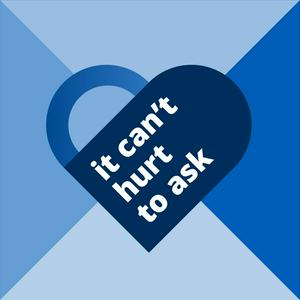
Get the free radio.net app
- Stations and podcasts to bookmark
- Stream via Wi-Fi or Bluetooth
- Supports Carplay & Android Auto
- Many other app features
Get the free radio.net app
- Stations and podcasts to bookmark
- Stream via Wi-Fi or Bluetooth
- Supports Carplay & Android Auto
- Many other app features


It Can't Hurt To Ask
Scan code,
download the app,
start listening.It Can't Hurt To Ask: Podcasts in Family

